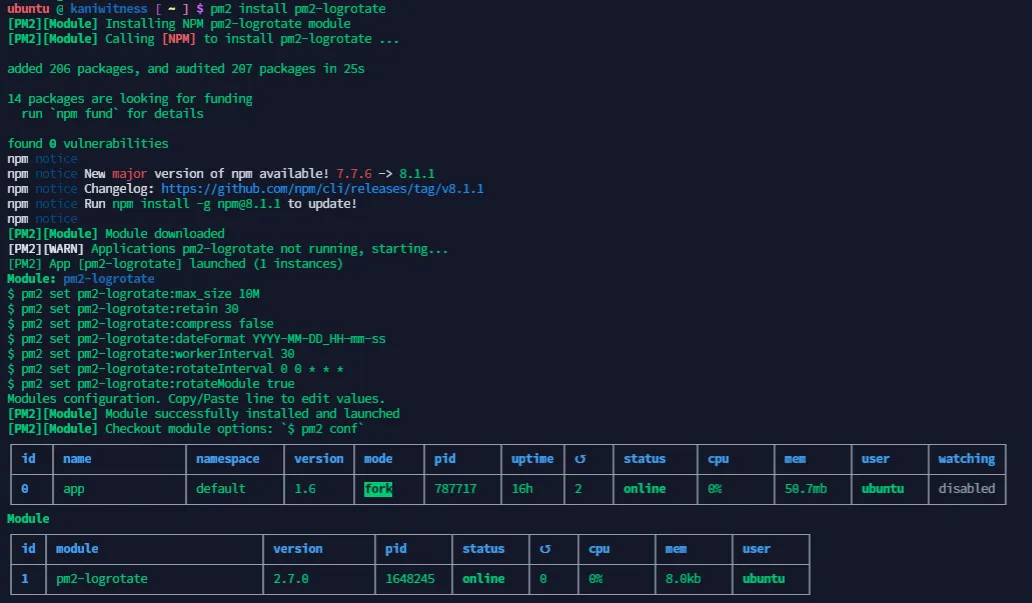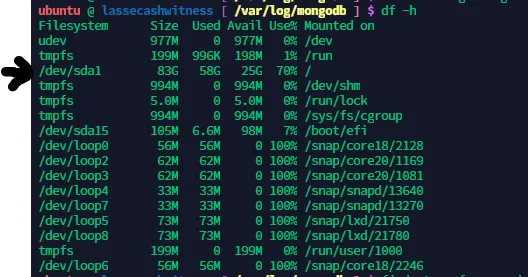Hive Engine witness servers are usually ever-growing. We cannot do much if the disk space is consumed for actual data. But we can make sure the logs and other backup files don't consume too much space. Even if they do so, we can make sure those are monitored and cleared or the logs are rotated. In this article, I'm going to be explaining some of the basic checks and steps that we can take to reduce the space occupied by the log files.
At the time of writing this article, 85GB disk space should be sufficient to run the witness node. It will anyway keep growing but it is wise to check the unwanted log files that are occupying the space and remove/rotate them.
PM2 log rotate
This is the first utility we are going to install to keep the pm2 logs under control. Especially when we are running a witness node, there will be lots of logging happening that can keep growing over the course of time. Though the logs are important, we will need them only when something goes wrong. Otherwise, in an ideal scenario, we don't really have to keep the old logs.

pm2-logrotate is a utility that comes along with pm2 that can be used to rotate the logs. The npm page has more details on the configurations we can do with that. I personally think that the default configuration itself should be sufficient. It can be installed as a module to pm2 and it will appear like the above.
Rotating Mongo DB logs
The mongo DB logs will also keep growing occupying a lot of space on our witness server. The same applies here as well. We need them only if things go wrong. On all other days, we are good if we just keep rotating the logs.
mongo
> use admin
> db.adminCommand( { logRotate : 1 } )
CTRL-D
The above commands will help in keeping the logs in rotation. In addition to this, if you already have log files that are old and occupy a huge amount of space, it will mostly be in the default directory cd /var/log/mongodb. You can check this directory and remove the old log file. It will usually be a file that comes with a DateTime stamp and it can be removed with the rm command. Sometimes it might require permissions to delete this file so using sudo in front of the command should do. sudo rm mongod.log.2021- ...
Check the size of individual files inside a directory
The below command can be used to check the individual file size inside a directory. This will give you an idea as to what is occupying more space. This command will also check the subdirectories, so it is better to run the command in your root directory.
find -type f -exec du -Sh {} + | sort -rh | head -n 5

After checking the file size you can remove the biggest file that is occupying the space. Inside the steemsmartcontracts folder, there is this file called node_app.log. This is a log file created by the application. We can also remove that file safely.
In addition to this if you would like to get the drive space or an overall disk space inside the VM. The command df -h will be helpful.

Alternatively, you can also use this find command to check if there are files greater than 10MB inside a directory. sudo find . -xdev -type f -size +10M.
 |
 |
 |
 |
 |
 |